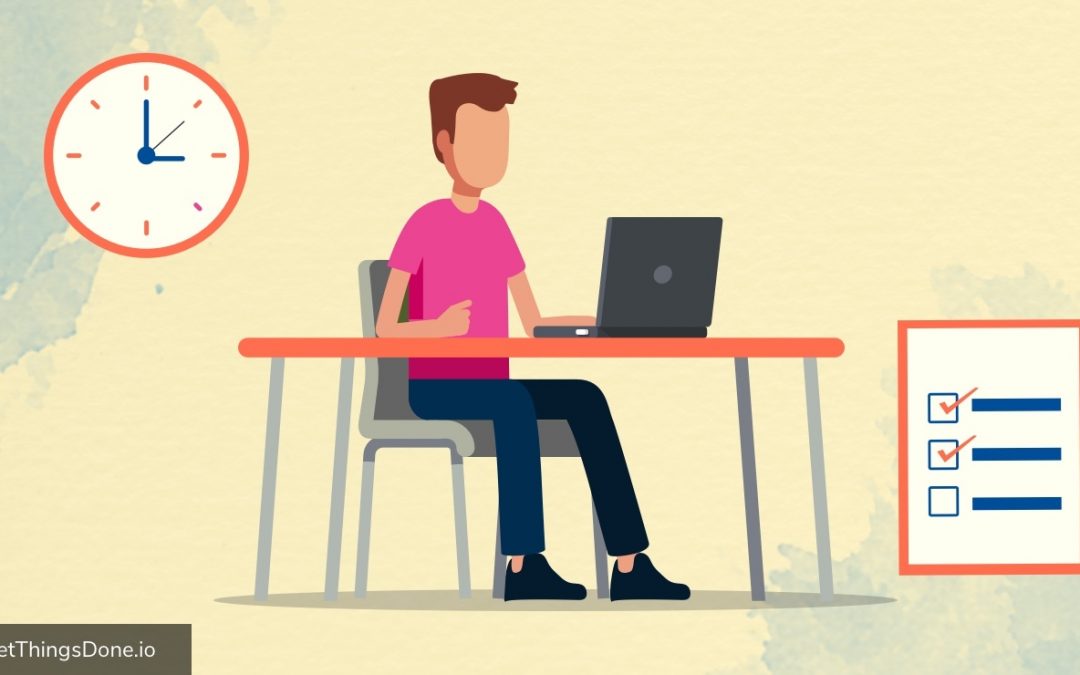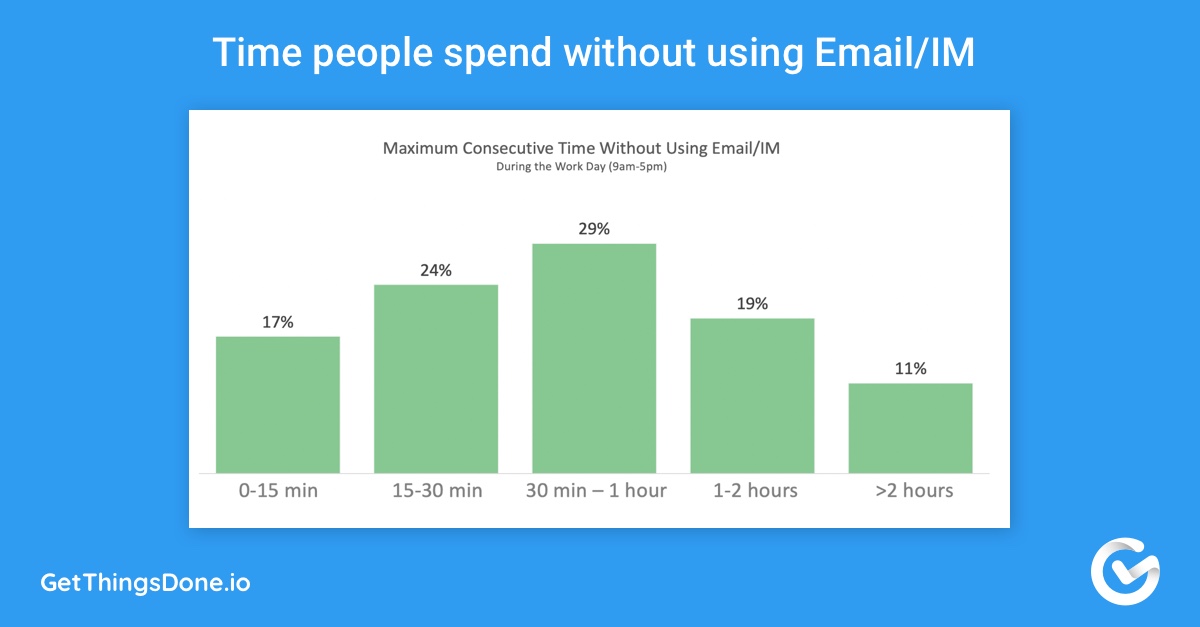Whenever I think of productivity, I remember my senior during my internship, who used to manage an hour-long task in 20-30 minutes thoroughly. I used to wonder that’s a smart work but never understood the secret behind it. I’m sure you all have that one person in the group to relate and the person is mostly described as a machine or robot.
Over the years, I switched company and realized that the people who enjoy work-life balance and diligent are the ones who complete their responsibilities on time. By observing their work traits, efficiency, and overcoming the challenges we all experience, it’s possible to boost your productivity.
Let’s check some important habits of highly productive people. There are secret ways and methods to stay focused; these productivity tips can maximize your efficiency — and get more done.
No formula can make you productive overnight. However, it’s a gradual process through which you become efficient by adopting small changes and putting them into habits.
1. Focus on the most important task
The most important thing is that of the to-do list with the many given task/activity, which is essential. In case you emphasize all to-do list at once, you will end up completing a mix of an important and not important task.
Whenever the task is delays, the whole day goes in checking the upcoming and the left behind reading. If this happens repeatedly, then you end up with completion essential and less important task. With this, you consume your extra effort and working hours on not so important task.
It is better to choose the three most imp task at first and complete those. By following this, you will focus on the critical ones and achieve it with full dedication.
2. Nurture deep work
Everyone has daily to=do task that needs to comply with the plan before going to sleep. You cannot multitask to complete it on time. Devoting serious time and focus to execute is called deep work. Deep work is an ability to concentrate meticulously on the demanding task.
We follow the principles of Deep work written by Cal Newport. He has suggested –
• Schedule deep work
• Distance yourself from distraction
• Give yourself goal and deadlines
• Train your mind to challenge work
• Prioritize and focus on the urgent-important instead of urgent-less important
Highly productive people have mastered these skills of deep work. Now it’s your time to master this to achieve work-life freedom.
3. Don’t distract, and stay focused
The distractions are many around your work, which seem unnecessary, but managing these needs serious gumption. Generally, the distractions can be through social media, emails, thousands of little to-dos and so on. It’s a productivity tip that you can keep your distraction list. When you try to focus more, it’s hard to maintain efficient work with distraction around.
When you feel you are distracting yourself from work, concentrate your mind to cut away from the monotony is important. For this, the Pomodoro Technique is powerful. It helps you split the work, and allocate the portions through intervals, mostly 25 minutes in length, separated by short breaks.
If you are doing deep work and some random thought pop up your mind, those thoughts don’t deserve attention at that time. If this happens, you can jot them down and can come back during the break time.
4. Use 80/20 rule
The other way to prioritize tasks is through a Pareto Principle, which states 80% of the results will come from 20% of the efforts.
Mostly, productive people identify 20% of their activities and then look at different ways to cut down the remaining 80% of their schedule.
5. Break tasks into smaller pieces
While at work, there are many reasons for the activities’ delays, but most importantly, the task on the to-do list needs to be clutter-free. If you have a job that is large in scope and the one not specific, then it becomes challenging.
You can break large to-dos into smaller activities and set goals for each task, and this will ensure your to-do list in order. But over the time you observe that it helps you do your things faster than before.
This method makes it easy to tackle your entire to-do list in order.
6. Take breaks
It is challenging to have a distraction-free focus for a long time. Even positively productivity, people can’t focus for eight straight hours.
According to research, a frequent short break affects productivity positively. You can take short breaks to help you recharge and brings new and creative ideas. It’s easy to justify distractions as taking a break. In case you don’t have break time scheduled, then you get distracted more.
As per the Pomodoro Technique, take a short break of 5 minutes regularly. Work intensely for a specific time and follow the short break.
So, schedule breaks to get productive at work and keep you fresh.
7. Eliminate inefficient communication
Usually, Email is considered as the primary communication at the workplace. Many people spend their workday with the email window visible and respond to every notification.
As said in deep work, there is a lot of value in reducing this kind of distraction. You can minimize your inbox and check after a specific interval.
Avoid back and forth of Email while scheduling a meeting. Be precise with your mail and keep it short.
8. Find repeatable shortcuts — automate tasks.
There are specific tasks that you repeatedly do, look for different ways to do tasks faster. These shortcuts can be as common as keyboard shortcuts or automating your entire business.
Repetitive tasks are candidates for delegation, shortcuts, or automation. Whit this you can save your time and energy.
9. Learn from successes as well as mistakes
When you are working fast, there are chances you make a mistake. Learning from our own mistake is evident and valuable. Usually, when things go wrong, you can analyze your error and prevent them next time.
When you have success, you are tempted to celebrate. That is obvious. The productive people make success by figuring out –
(a) What went well?
(b) What should one conclude from this experience?
(c) Why it went well?
By asking such questions, you can have repeated success.
10. Plan for when things go wrong
You have plans set for any good working day, but something goes wrong needs your attention swiftly, which could happen to anyone.
Most productive people are prepared for the contingency and acknowledge it well. They also realize the effort to schedule the plans and tasks are critical. The thoughtful measures and process are well-taken care before the start of any projects.
Research on the planning error demonstrates many reasons for this misestimation- We forget to consider tasks or responsibilities that aren’t yet on our calendars.
11. Don’t multitask
We have spoken about multitasking many times. If you dare to multitask, you will end up in a fiasco. Because, when you multitask, you think you do two tasks at a time. But the reality is you keep on switching your task rapidly between two of them.
Every time you switch, you re-focus on the new task each time, which decreases your productivity and increases your effort and time.
Question is how you can stop multitasking?
You can avoid multitasking by closing your Email and focus on the task you are supposed to concentrate.
12. Manage your energy along with time
A stitch in time saves nine. It’s better to spend a little time and effort on a particular task right now rather than wait until later. That time it may get worse and take longer time to deal with.
In case you are exhausted and can barely think, that point of time it doesn’t matter how much time is left for a day. You won’t be able to use time wisely.
Productive people are aware of the fact that it isn’t enough to have time for their tasks. Managing your energy to confirm that you tackle the most intense tasks while you have the energy to handle them is an essential trick to becoming productive.
Get Things Done – a cloud-based pro-work and project management simplifier platform. Establish your natural means to address everyday chaos and help you build instant collaborations with the team, tasks, and step-up your functional duties to achieve the desired results. Regardless of the type of role you come from, either you are in the Project management team, IT teams, Remote working teams, Marketing, Sales, HR, Media, Production, Processing, Engineering, and host of multiple working environments.
Come join to experience work-life freedom.




